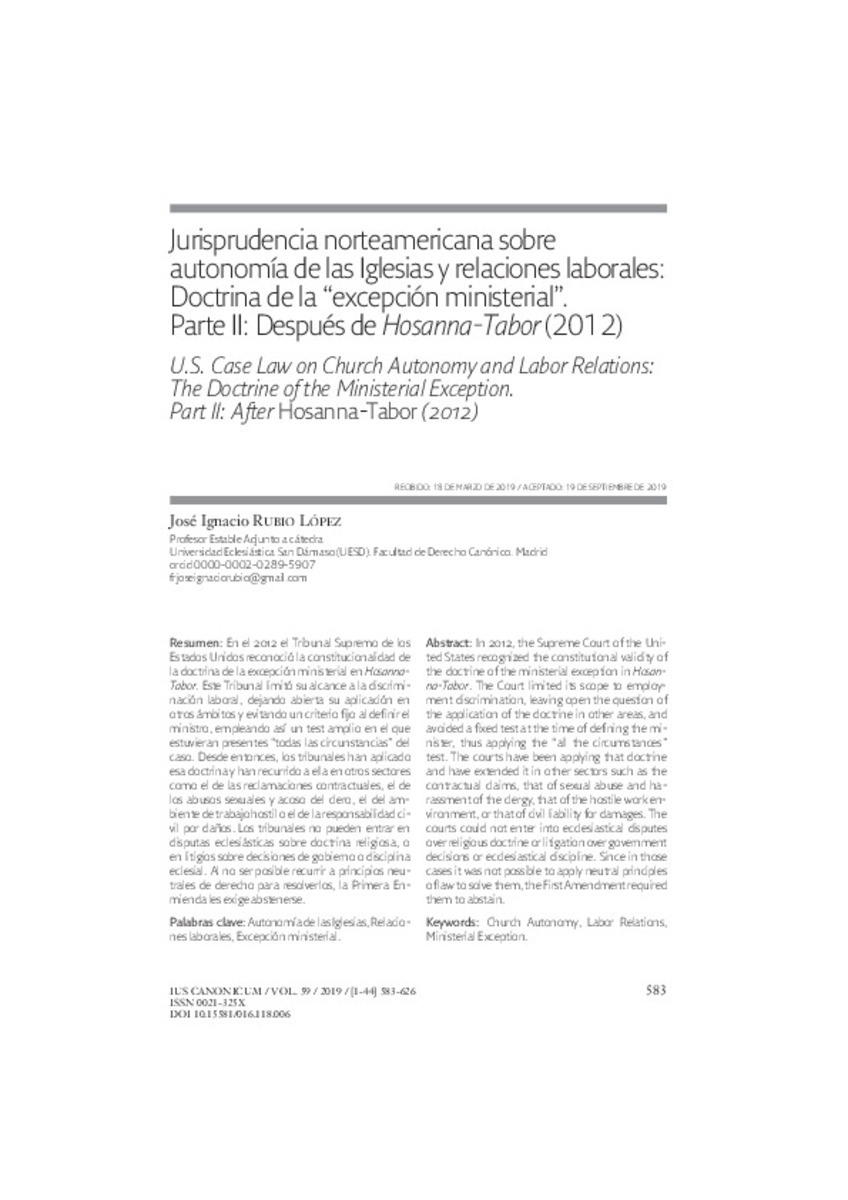Jurisprudencia norteamericana sobre autonomía de las Iglesias y relaciones laborales: Doctrina de la "excepción ministerial". Parte II: Después de "Hosanna-Tabor" (2012)
Other Titles:
U.S. Case Law on Church Autonomy and Labor Relations: The Doctrine of the Ministerial Exception. Part II: After "Hosanna-Tabor" (2012)
Keywords:
Autonomía de las Iglesias
Relaciones laborales
Excepción ministerial
Publisher:
Servicio de Publicaciones de la Universidad de Navarra
Citation:
Rubio-López, J.I. (José Ignacio). "Jurisprudencia norteamericana sobre autonomía de las Iglesias y relaciones laborales: Doctrina de la "excepción ministerial". Parte II: Después de "Hosanna-Tabor" (2012)". Ius Canonicum. 59 (118), 2019, 583 - 626
Statistics and impact
0 citas en

Items in Dadun are protected by copyright, with all rights reserved, unless otherwise indicated.








